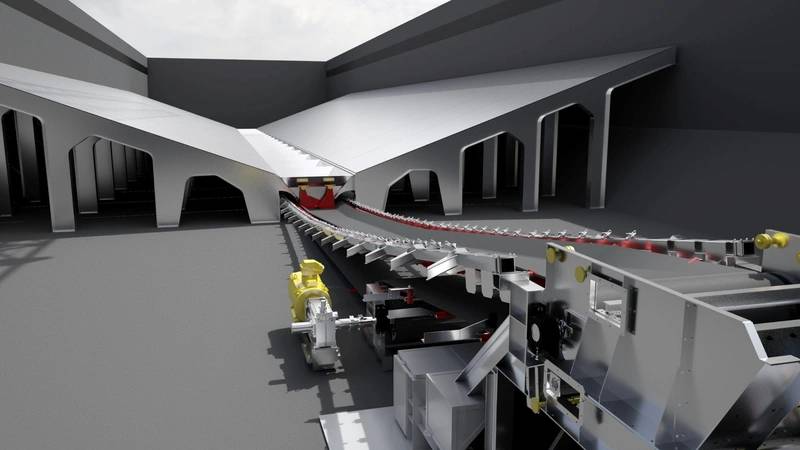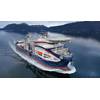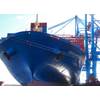New Gravity Self-Unloading System Launched
MacGregor, part of Cargotec, has launched a new and augmented gravity self-unloading system that it says will allow bulk carriers to deliver a wider variety of cargo, in greater volume.
The new system, the MacGregor GravityVibe, deploys a patent-pending vibrating unloader to reduce internal friction and ease the discharge of coarse materials such as wood chips from the cargo hold.

While the automated unloading sequence remains a gravity-based operation, the MacGregor system includes vibrating panels to shift the remnants or break the ‘bridges’ that form when coarse material sticks together to block the outlet.
The vibrating panels are isolated from the hull structure – using a solution from MacGregor on which a patent is pending – to minimize the transfer of vibrations and noise to other parts of the vessel.
In contrast with a standard gravity self-unloading configuration, where slope angles range from 35 to 60 degrees depending on the material, the new MacGregor system can discharge various cargo types with slope angles of just 15–20 degrees. Since steep slope angles limit hold volume, the system therefore increases not only the variety of cargo types a vessel can handle but also its cargo capacity. The additional capacity also translates into lower carbon dioxide emissions per carried tonne of cargo.
Whereas large sized conventional self-unloaders feature two longitudinal and two transfer conveyors, the MacGregor GravityVibe’s low slope angles also mean that it functions with just one longitudinal conveyor. With fewer components installed, the required maintenance and spare-parts will be low when compared with conventional self-unloading systems. The streamlined set-up also minimises spillage and the need for cleaning, meaning less work and improved safety for crew.
Related News


